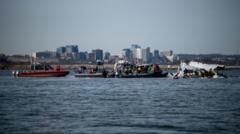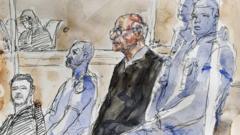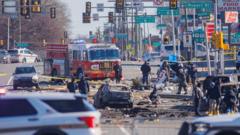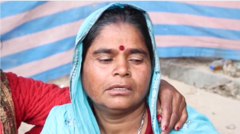The once-heroic Operation Car Wash, unearthing widespread corruption across 12 Latin American countries, faces a significant unwind as Brazil's Supreme Court dismisses key evidence and convictions, signaling a troubling shift in the fight against systemic corruption.
Operation Car Wash: The Dismantling of a Landmark Corruption Case Across Latin America

Operation Car Wash: The Dismantling of a Landmark Corruption Case Across Latin America
Brazil's Supreme Court is reversing corruption convictions that once promised to transform the region's political landscape, raising new questions about justice.
In a surprising turn of events, Operation Car Wash, one of Latin America's largest corruption crackdowns, is facing a major rollback. Brazil's Supreme Court has recently declared the dismissal of critical evidence and the suspension of numerous convictions as it responds to legal challenges from individuals claiming unfair treatment. This historic decision has far-reaching implications, not only impacting senior politicians and business figures in Brazil but also contributing to the dismissal of at least 115 convictions across multiple nations, according to anticorruption advocates.
The ramifications of the Supreme Court's decisions are particularly significant as the original investigation unveiled a sweeping bribery scheme that intertwined various governments throughout the region. Since its inception a decade ago, Operation Car Wash revealed that corporations funneled billions into bribes for public projects, drastically altering the political landscape in Latin America. The scandal led to the closure of multinational companies and saw various high-profile leaders, including Brazil's former President Luiz Inácio Lula da Silva, imprisoned.
However, as Brazil's judicial system reconsiders the foundational cases of Operation Car Wash, the effort to eradicate corruption appears to be unraveling. The initial ambition of the operation—to tackle the systemic corruption that plagued governments—now faces a disheartening conclusion. Legal experts and anticorruption groups express concern that the recent reversals not only undermine justice but may also embolden corrupt practices to reemerge, casting doubt over multiple related cases in Panama, Ecuador, Peru, and Argentina. The investigation that was once heralded as a transformative force against corruption now finds itself at a critical juncture, leaving the future of integrity within governmental institutions hanging by a thread.




















